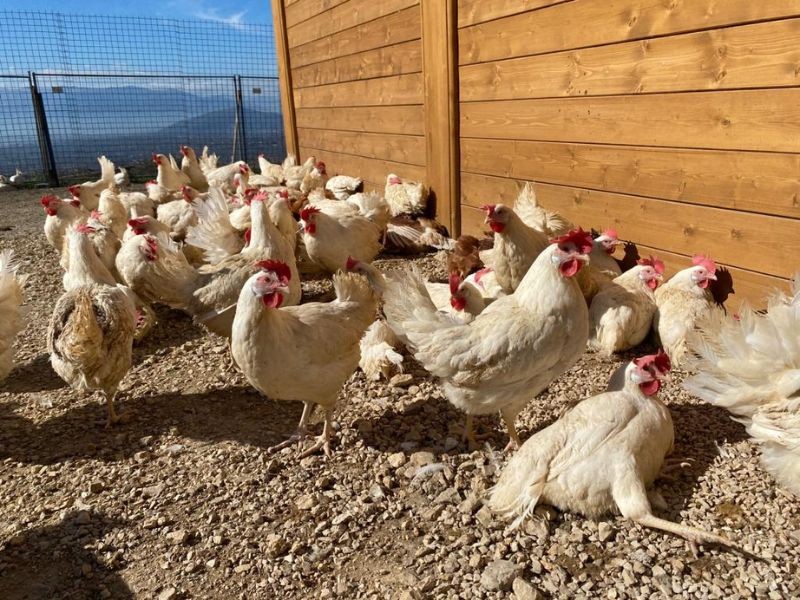
Free-range eggs
Here are some characteristics of free-range eggs:
Outdoor spaces: Free-range chickens have access to outdoor spaces, which can vary in size but must provide them with an adequate environment to explore and move around. These spaces may include lawns, pastures or grassy areas.
Natural feeding: Free-range chickens have the opportunity to search for insects, worms, grasses and other plants in their environment, enriching their diet with natural foods. This contributes to a more balanced and varied diet.
More active life: Unlike chickens confined to intensive farms, chickens raised outdoors are able to exercise more, with limited walking, scratching and flying. This leads to more developed muscles and better overall health.
Natural light: Free-range chickens receive natural light from the sun, which contributes to better health and well-being.
Stress reduction: Access to outdoor spaces and the opportunity to express natural behaviors reduce stress and improve the well-being of hens, which can affect the quality of eggs produced.
Egg quality: Free-range eggs are often considered to be of better quality than those from factory farms. They tend to have a thicker shell, more vibrant yolk color, and richer flavor due to the variety in their diet.
It is important to note that free-range eggs are considered a more ethical and sustainable choice than eggs produced on factory farms.
